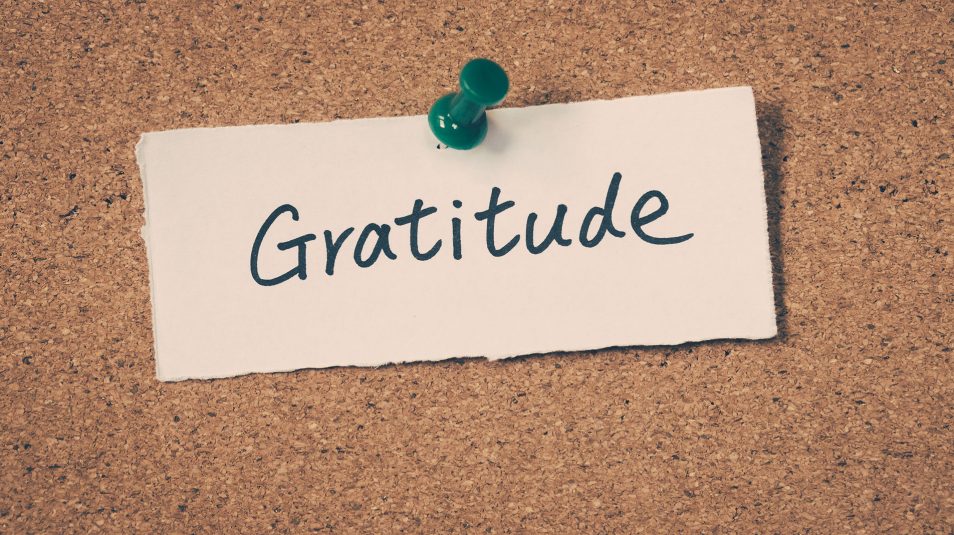Daily Gratitude

Gratitude is about attitude. It is the mindset you wake up with every morning and it guides your outlook on the world. I make a conscious effort to be positive and thankful for what I have.
Gratitude is a conscious choice. It doesn’t just happen.
You have to think and act on it. You have to take stock of your life and appreciate all the wonderful things in it. The alternative is to focus on what is not going right, which produces a gloomy outlook and attitude. Being grateful gets you a lot further in life than the alternative. Having a positive outlook actually makes you more attractive to others. It is hard for people not to notice a smile on your face. Studies by psychologist Robert Emmons and others have shown that those who demonstrate gratitude are more energetic, emotionally intelligent, forgiving, and less likely to be depressed, anxious, or lonely.
Gratitude not only makes us feel happier, it is a significant cause of positive outcomes.
A gratitude orientation produces measurable results in your life and enhances your performance. You are more pleasant to be around, which sets you apart from the pessimists. Seeing the good in life allows you to avoid being judgmental and promotes unconditional positive regard, which acts as a relationship accelerator. We want to be part of a group and to be appreciated by others in that group. Showing someone gratitude is a powerful way to meet that need.
Gratitude makes us better leaders.
For many years, leaders have spoken about the carrot and stick approach to motivating people. We think differently about this and the research supports a more positive approach. The stick is easy to employ and often leads to micromanaging and resentment by employees. On the other hand, the carrot is so much more effective in motivating others. It is as simple as saying, “Thank you for doing a good job.” It’s well-documented that when we use positive reinforcement for a specific desired behavior, it dramatically improves the probability the person will repeat the behavior. Showing gratitude is a positive reinforcement.
Gratitude motivates us to work harder.
Everyone likes to feel appreciated. It is imprinted in our DNA. It is a need, not just something nice. Without it, we feel isolated, depressed, and like an outsider. When you acknowledge others for their hard work and you thank them for it, they also appreciate the fruits of their labor. They work hard and they are rewarded for it. They don’t just expect things—they earn them. Gratitude is infectious, and, like a virus, when it touches people it changes them at an almost molecular level. When people are inspired and acknowledged, people are transformed.
Gratitude drives your purpose.
Part of my personal purpose is to be appreciative. I am aware of people doing a good job and I acknowledge them for it. How do you think gratitude fits into your purpose? How are you delivering that gratitude every day? This ties directly to social awareness. You must be aware of whether your intent matches your impact. If you want to differentiate yourself from the crowd, you must build solid relationships with others. People are attracted to those who show them gratitude and appreciation and respect for their skills, their ideas, and even their time. Showing someone gratitude is the same as showing them respect; this is highly regarded in business and in any relationship.
Bottom Line: Gratitude is a conscious and willful action. You have to be aware of what you have in life for which you should be grateful. Once you have identified all your blessings, then remember and renew your gratitude for each one daily. Thankfulness is the sun in the morning fog—gratitude will burn away any doubts you have about your purpose in life.






[…] article originally posted on Lead Change Group in May […]
Hi David,
Loved this post. Left me more inspired. I too have my share of ups and downs and I definitely agree whenever I contemplate on my blessings, the negativity goes away.
Thank you for the wonderful article explaining the benefits of gratitude.